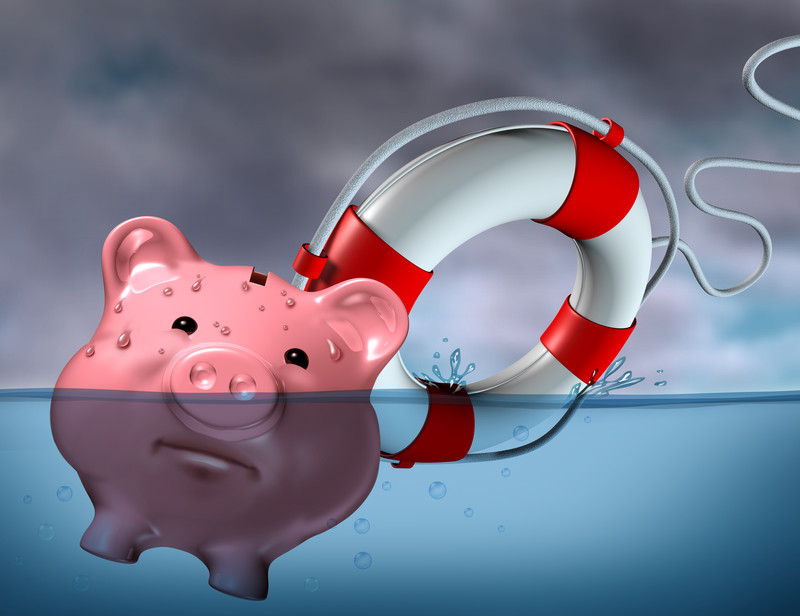Opportunity Cost —
Do Your Personal Finances Turn a Profit?
Article by R. Joseph Ritter, Jr. CFP® EA
Opportunity cost is a fundamental principal of economics. We think normally of opportunity cost in terms of business – will the east or west part of town be more profitable for a new store location, or is it more profitable to manufacture screws or nails, or what is the net difference between borrowing rather than buying with available cash.
The reason we tend to limit opportunity cost thinking to businesses is we do not think of running a home as a profit-making enterprise. But what is profit? Isn’t profit the money we have left after deducting all expenses from income? In the home, we call that “savings” or “how much we have saved.” If you do not have much in savings, then maybe your home is not as profitable as it could be.
Opportunity cost has something to teach us in every home and is not just a business concept used by calculator nerds.
Investopedia.com defines opportunity cost this way: It is a choice between two options that must be made. It would be an easy decision if you knew the end outcome; however, the risk that you could achieve greater “benefits” (be they monetary or otherwise) with another option is the opportunity cost.
Does my home need to turn a profit? It’s not a business! If a business doesn’t turn a profit, the money to operate the business must come from somewhere. Often the business owner pays for operating expenses from his own pocket or other business ventures. When that isn’t an option, the business borrows money to operate. When it can’t borrow any more money or the owner is out of money, the business is bankrupt.
Your home will go bankrupt if you don’t turn a profit. If you are not saving money and instead rely on credit cards, student loans, personal loans and other debt to make ends meet without ever paying them off or saving any money, your home will go bankrupt. So, yes! Your home must turn a profit, or you will be bankrupt.
Three points that cause the most difficulty in determining opportunity cost in the home are evaluating the end outcome, setting priorities, and non-monetary effects of decisions.
1. Sometimes it can be difficult to clearly see what an end outcome might be. We might even ignore the outcome if a decision leads to immediate happiness. For example, you go to a party and get drunk. Afterwards, you get in the car and drive home. On the way, your driving is impaired, and you cause an accident. Obviously, no one goes to a party or drinks alcohol for the purpose of causing an accident. But in the moment, your focus was on the party and alcohol rather than the potential outcome.
Dining out is a big unnecessary purchase that trips up the budgets of many families. In the moment, the convenience and fun of dining out are more important than saving money at the end of the month.
We can only evaluate outcomes with information and planning. Checking your balance to be sure you have enough to eat out tonight requires no evaluation or planning. Do that enough times, and it will ruin your finances. Information and planning begin with setting goals and priorities that determine how you will spend your money before you get your paycheck. This process allows you to weigh the cost and benefits of the decisions you make with money.
2. When we come into the home, priorities influence opportunity cost the most of any other factor in our decision making. If money is tight and money is spent on cigarettes, television packages, soda, beer, entertainment, new car payments, and other things, then the money spent is not available for essentials such as food, shelter, clothing, utilities, education and medical care. Our priorities dictate where money goes first. “I need this” is how we justify spending money on something that has nothing to do with household needs and true priorities.
When you read the budgeting materials Zacchaeus Financial Counseling has developed, you will see that “priorities” are defined as household essentials – food, shelter, clothing, utilities and transportation. There can be very significant “opportunity costs” of spending money on things which are not “priorities.” We can end up malnourished, improperly dressed, homeless, and unemployed.
3. Opportunity cost is not just about dollars and cents. With everything there is a cost, whether it can be quantified by money or not. Sometimes your decision involves someone else, such as your spouse and your children. If you ignore the opportunity cost, they now have no voice in the decision-making process. You may be prepared to accept the consequences of a particular decision, but they may not be. Still, they can be dragged into your consequences whether they like it or not.
Opportunity cost can involve issues such as health from engaging in activities that give us temporary but immediate pleasure in exchange for significant long-term health risks.
The objective guidance of an independent professional can help evaluate opportunity cost and design a plan for your home to turn a profit. The CFP Board is rigorous in training financial professionals to examine “what is possible,” and Zacchaeus Financial Counseling can help you find possibilities that perhaps you never thought existed.
